"Alphabet of Beer" is the first title I came up with 15 years ago, when I started collecting my beer stories," journalist of the Bulgarian National Radio, connoisseur and exceptional expert on one of the most ancient drinks in the world, Lyudmil Fotev, writes in the preface to his new book. Since each alphabet is the basis of one or more languages, in its first edition in 2009 the title of the book underwent a change and thus "The Language of Beer" emerged on the market. In it, the author answers many questions related to both the etymology of the word and the differences characteristic of different types and styles. The connection between the symbols - plants, animals, people depicted on the labels and the corresponding beer also becomes clear. In the past year 2024, Fotev once again took us on a journey into the world of beer with new expanded edition, which we can now discover under the title "Beer Languages". The reason for our meeting is the premiere on May 8. We asked him which of the languages can we define as dominant?
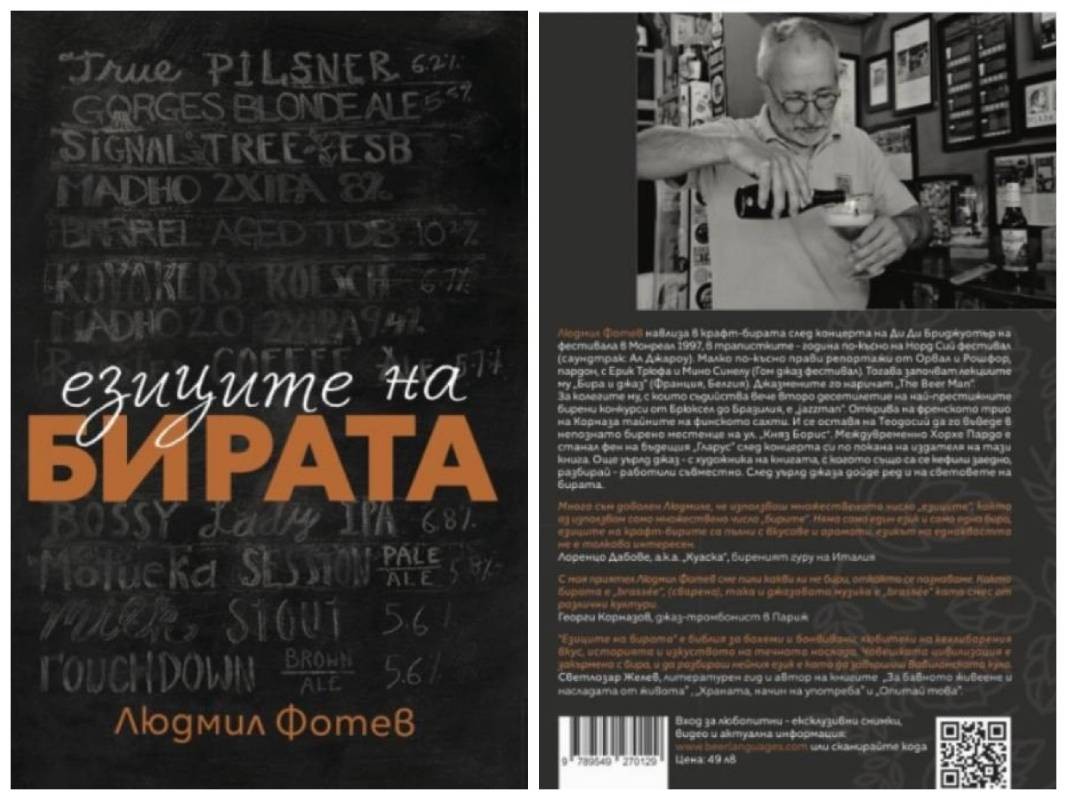
"There are no dominants and subdominants. Languages are for communicating with each other. If a language claims to be global, at one moment it may be the language of pilsner, at another moment it may be that of IPA (India Pale Ale), at a third moment it may be the language of sour beers, so polyglotism is advisable."
As for whether there are parallels between beer types and music styles and to what extent a person can be defined according to them, the short answer is "yes".
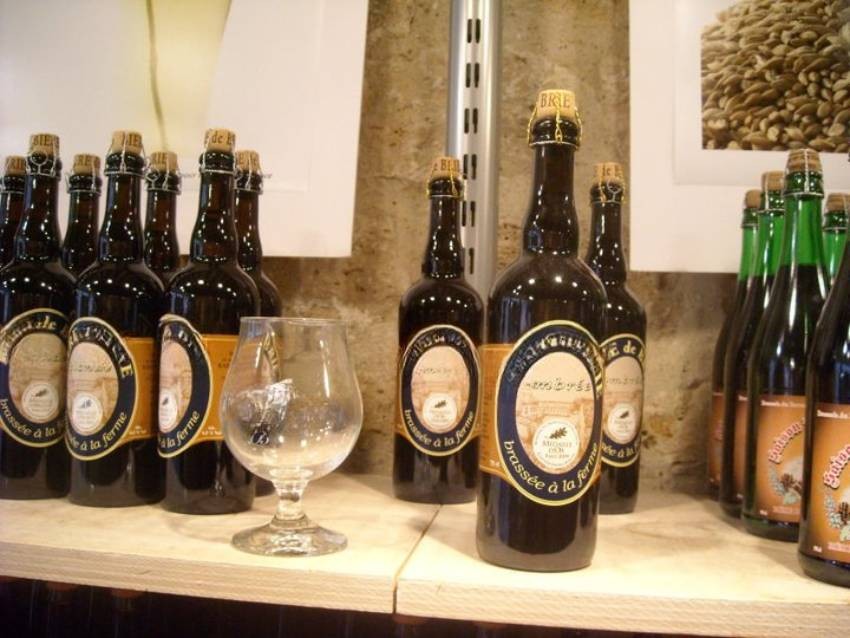
"A person is his or her style. You cannot be stylish in your music taste and kitschy in degustation because the more you start liking something, the more interested in it you become and learn new things about it. It is the same with music, it is the same with beer, with literature, with absolutely all areas of art. It is no coincidence that I consider beer to be more of an art form than some industrial, mass-produced product."
Unfolding the pages of the book, which cannot and should not be read as a novel, but rather as an encyclopaedia from which you can learn something new every day, we come across the chapter dedicated to beer in Bulgaria:
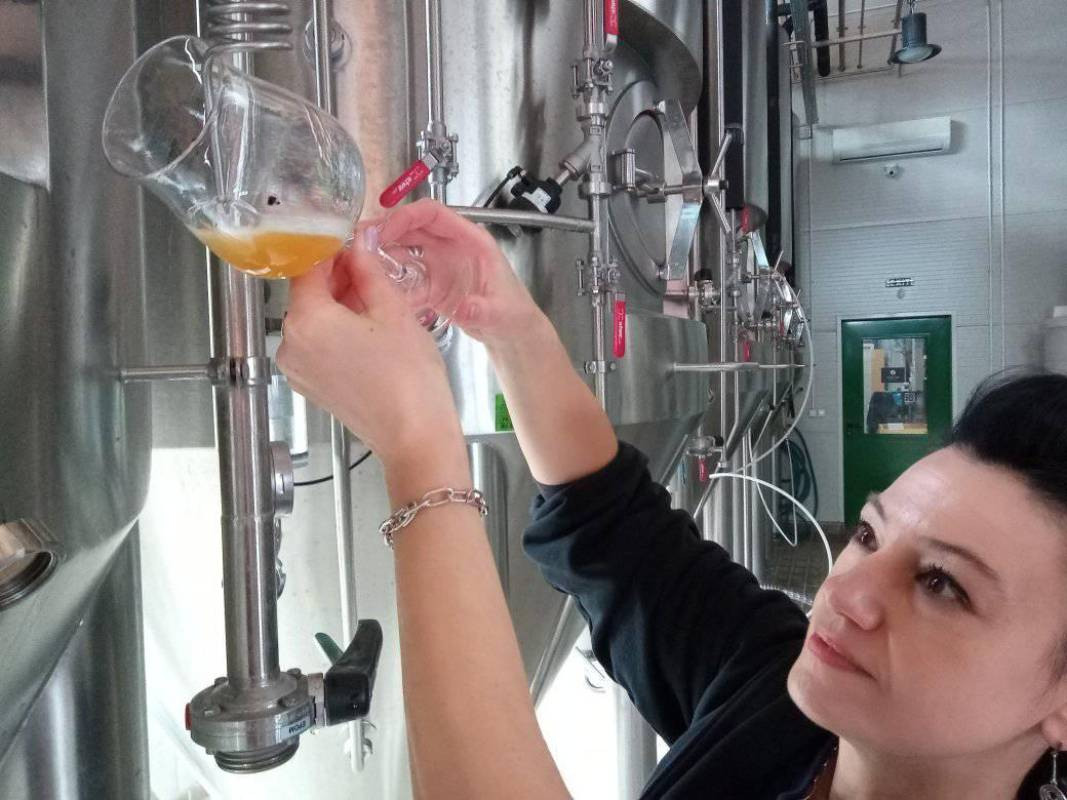
"This is the chapter that has been translated into four languages on the book's website, to make it accessible to all my foreign friends and readers,” Lyudmil Fotev tells us. “They are extremely interested in history, modernity, but also in the way beer is positioned in a traditionally wine-producing country like Bulgaria. Some try to present it as a country of hard liquor, but I strongly disagree with this. In Bulgaria, both hard liquor, good wine and good beer coexist very well."
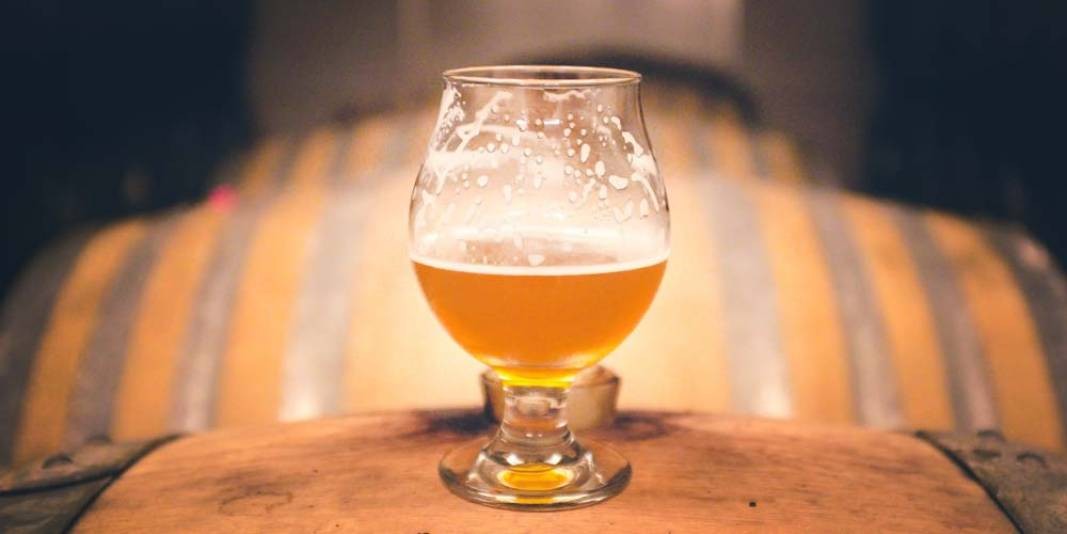
Lyudmil Fotev is also a judge at numerous international beer competitions in Europe and around the world. Among the members of the jury in such forums, it is mandatory to include a representative of the host country, a lady, a representative of the so-called New World (Australia, USA, South Africa, Argentina, Chile), a journalist, a person from the HoReCa business (hotels, restaurants, cafes), and the more diverse the experience of its members, the more reliable the final decision.
What are the qualities that a judge in such a competition should have?
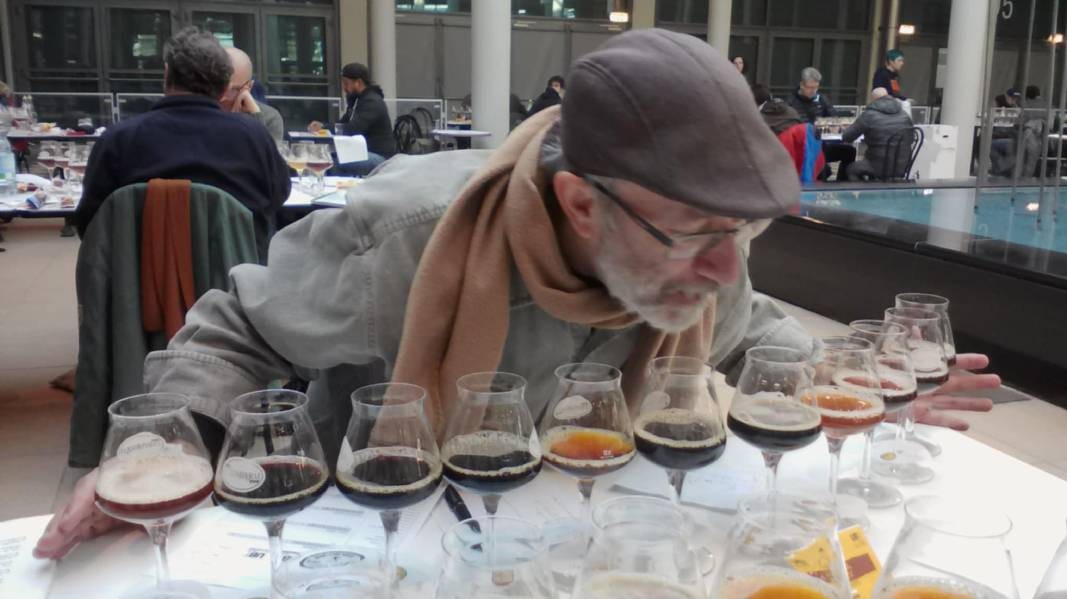
"They must have well-trained senses, to taste many different things, as well as to take notes. One must also be a person with imagination who can put into words what he feels while sipping, beyond the most traditional tastes and aromas. The answers you have to give are tailored to the respective style of beer, but to do so you must be familiar with this style and about fifty different representatives of it," the connoisseur says in conclusion.
Publication in English: Al. Markov
Photos: beerlanguages.com, Lyudmil Fotev’s personal archive
The branch of the "Angel Kanchev" University of Ruse in Razgrad carries out joint scientific projects, participates in various forums and exchange of students and lecturers with higher education institutions in Bulgaria and abroad,..
At the end of May, the Bulgarian Embassy in Rome graciously hosted a solemn ceremony to end the school year at the Abagar Bulgarian weekend school. The education of 93 children of different ages is carried out in 3 school branches. The largest..
Sofia Municipality is creating a youth volunteer team for rapid response called "SOfia HELPers". The initiative to form youth groups ready to assist in various areas and in crisis situations comes from the Sports and Youth Activities Directorate of the..
The Consulate General of Bulgaria in New York is opening its doors to interns and volunteers who want to gain a realistic idea of the diplomatic..
A delightful town, Pazardzhik, lies just 37 kms. from Bulgaria’s second biggest city, Plovdiv, and about 100 kms. to the Southeast of the country’s..
Summer, high temperatures, holiday mood. But unfortunately, summer brings not only positive emotions, but real and very serious problems. For example,..

+359 2 9336 661
